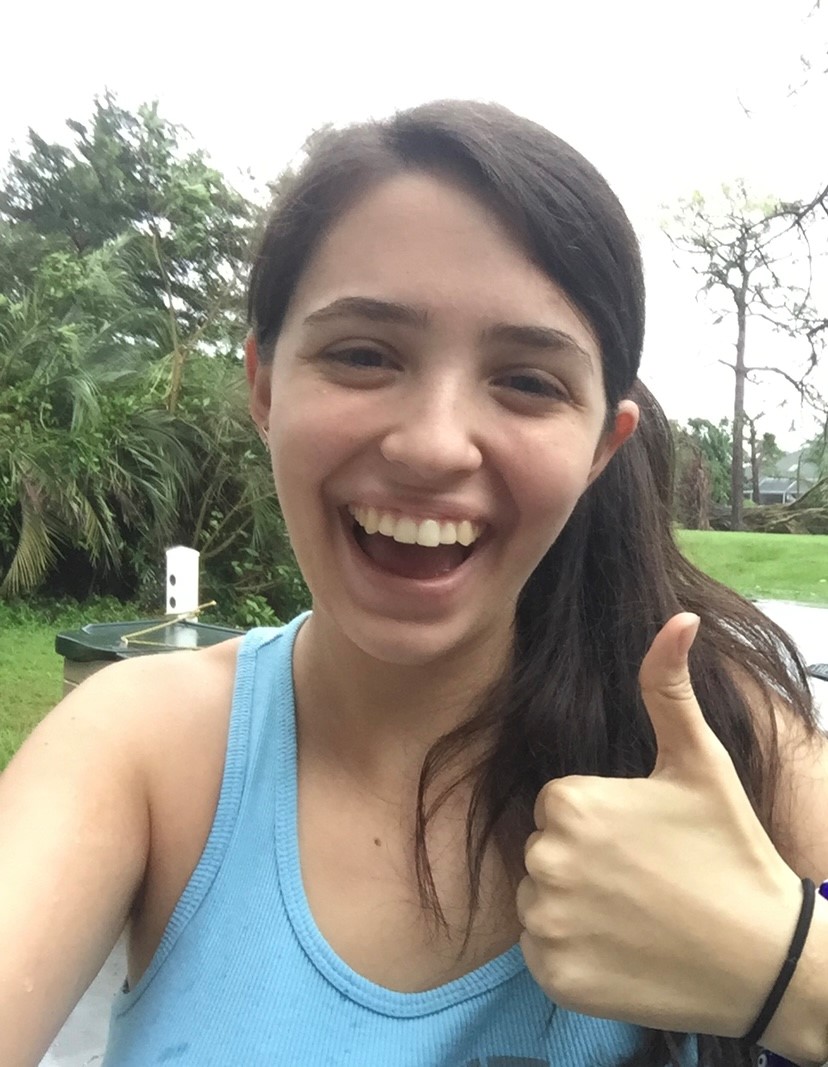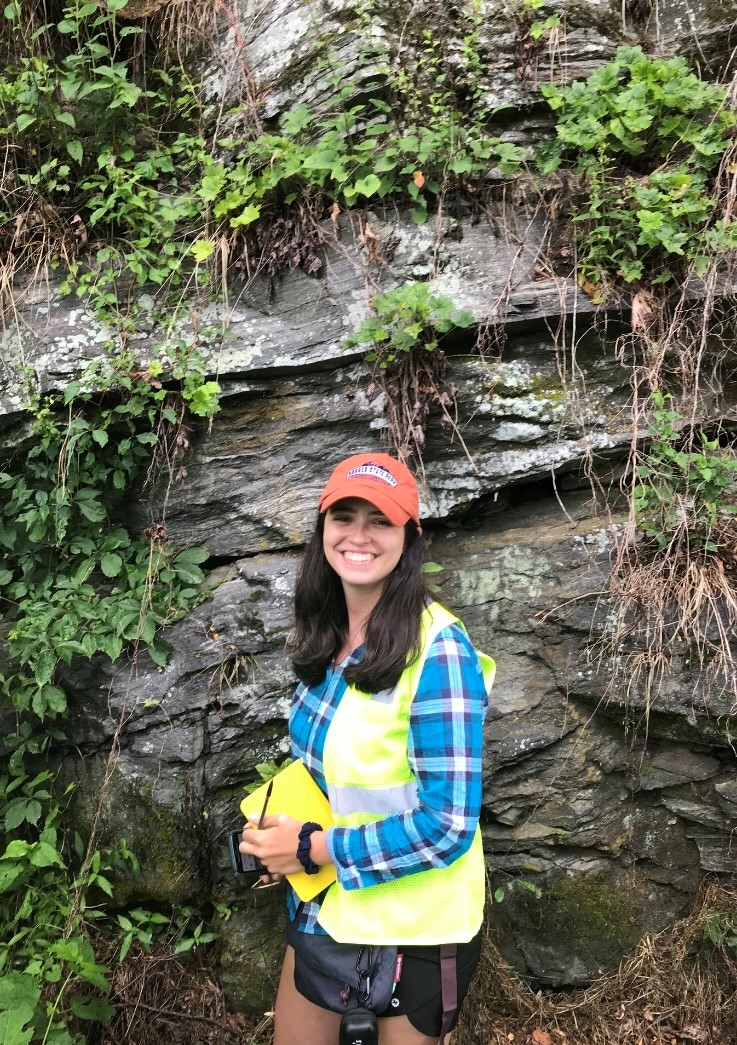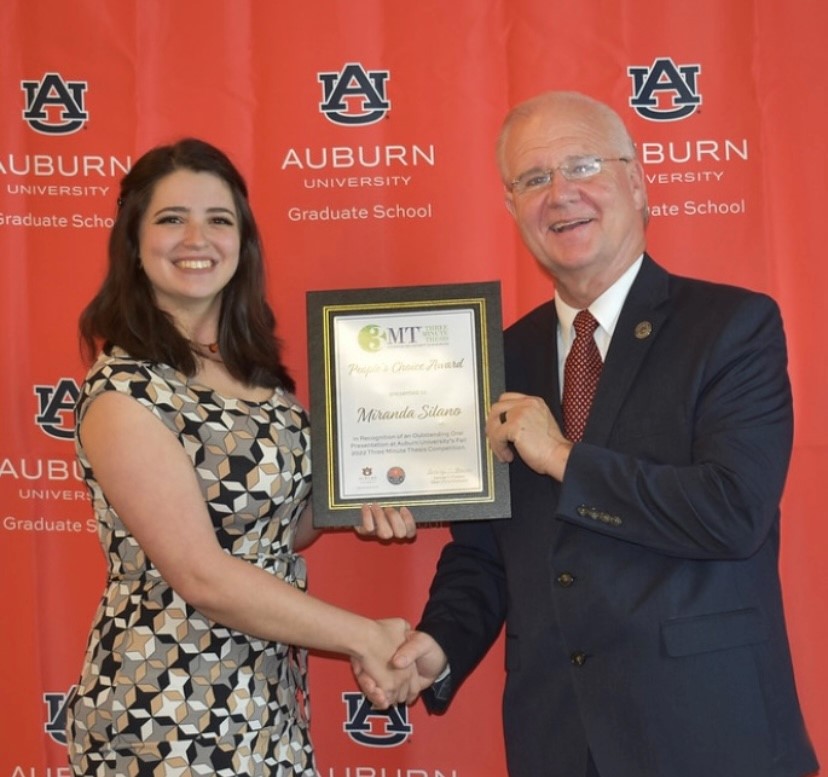As a kid, Miranda Silano was interested in dinosaurs. At 3 or 4 years old, she announced to her parents that she wanted to be a paleontologist at a time when most kids her age couldn’t even pronounce the word "paleontologist." She recalls she had a children’s book on earthquakes and volcanoes that really sparked her interest at first in natural hazards and how the planet worked. Growing up in Naples, Florida, she experienced firsthand the impacts of hurricanes and was fascinated. She naively took the below picture in 2017 standing outside as the eye of Hurricane Irma passed over her (side note: she does not recommend that to anyone now). She was graduating high school at the time Hurricane Irma made landfall and wanted to understand more about our planet and how climate worked. She studied geology at the University of Florida, where she did research focused on past climate change and its effects on ecological relationships. That research included fieldwork in the badland and grassland regions of the western U.S. and collecting fossils (specifically teeth) to learn how, 34 million years ago, a global cooling event changed the climate in the western U.S. and influenced the diets of extinct carnivores. She remembers that she really enjoyed the weeks in the field and the shower afterward. After receiving her bachelor’s degree, Miranda had a desire to learn more, but to learn more about something different. She had, thus far, concentrated on past climate. Now, she wanted to discover more about our modern climate situation and how current climate change conditions so often influence natural hazards, like hurricanes, that were affecting her Florida. Miranda entered graduate school under the advisement of Dr. Mitra in the Department of Geosciences and is a part of the 2nd cohort of the NSF Research Traineeship on Climate Resilience. She will defend her thesis research on “Tropical Cyclone Risk and Its Effects on Socially Vulnerable Populations Within Small and Medium-Sized Cities Along the Gulf Coast” this summer. When asked what led her to this study, she reflected that many scientists have a hard time communicating their science about tropical cyclones (i.e. tropical storms, depressions, and hurricanes) to the people that are directly affected by them. She spoke about how in scientific literature documenting the aftermath of the effects and damage from tropical cyclones is more scarce than it should be when compared to other publications regarding the physical science of tropical cyclones. This is what led her to also add a social component to her thesis over a strictly scientific thesis on tropical cyclones. "Tropical cyclones are the costliest and deadliest natural hazard in the last few decades in the United States," she passionately reports. She says that "we have heard that vulnerable communities are at a higher risk for damage from natural hazards like tropical cyclones. I want to measure if there is a correlation between different physical risk results and the socially vulnerable groups living in that area. I would then hope to share my results better than what is currently being done." Miranda continues to share that “one of the most beneficial courses I took during my master’s program at AU was the required NRT course, Science Communication, with Dr. McNeal." She described that "in class, we learned how to avoid scientific jargon, be more engaging, and practice doing outreach activities and presentations." Miranda excels in this area as she recently won the People’s Choice Award at Auburn’s 3 Minute Thesis speech competition for Auburn’s entire graduate program.
Miranda graduates with her master's in less than 3 months now. She doesn’t have one specific dream job, but the “dream job qualities” she is looking for in her future job are to use her geoscientist skills, passion, and experiences to help communities, organizations, or businesses develop sustainable, climate-resilient, and environmentally friendly practices. Ideally, she would like to have work that puts her outside and where she is working in a team. Miranda has a genuineness and clarity when she speaks with the community. This was seen during her NSF Traineeship at K-5th grade outreach events with children, with older adults at Citizens Climate Lobby events, and with her colligate peers that voted her the winner of the People’s Choice Award. Whatever company does employ Miranda next will benefit from her dream scientist qualities.



